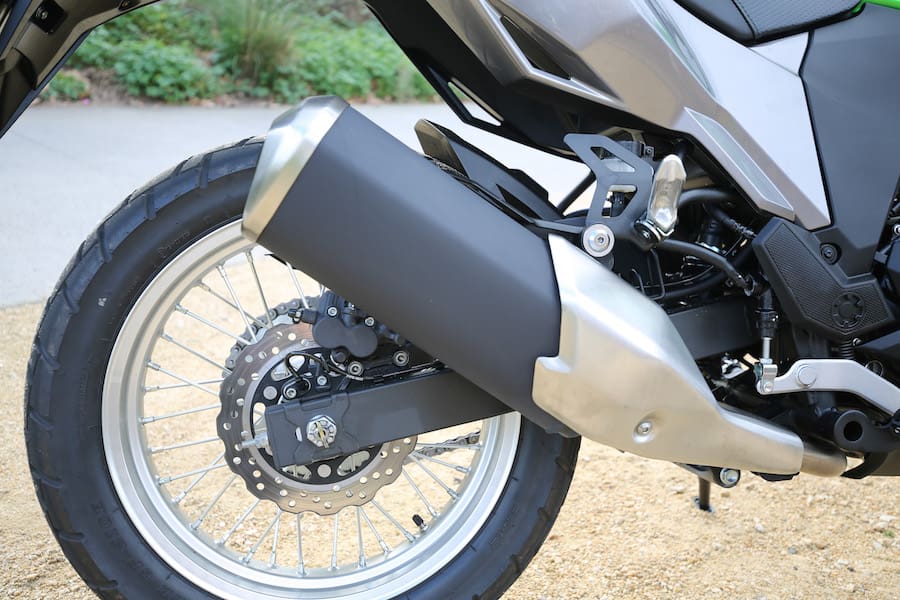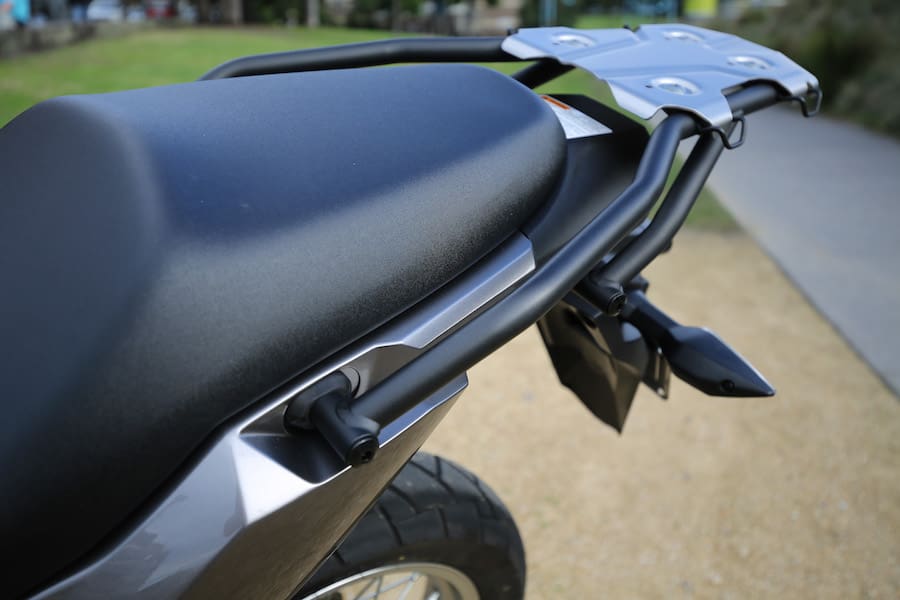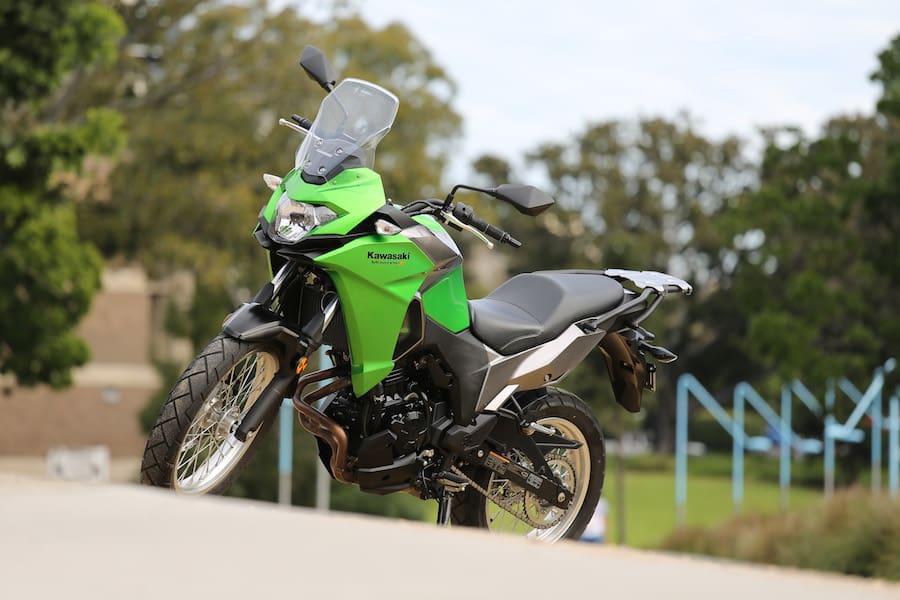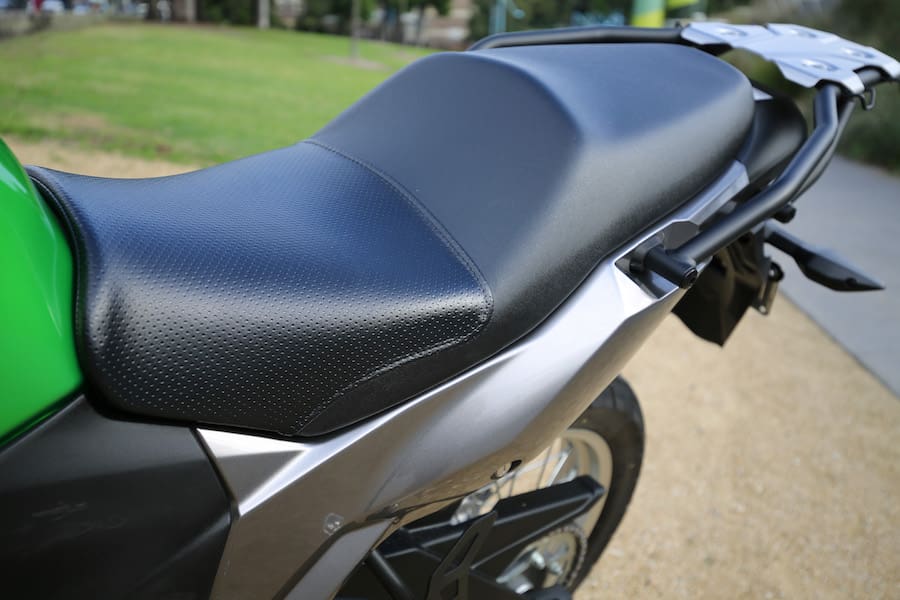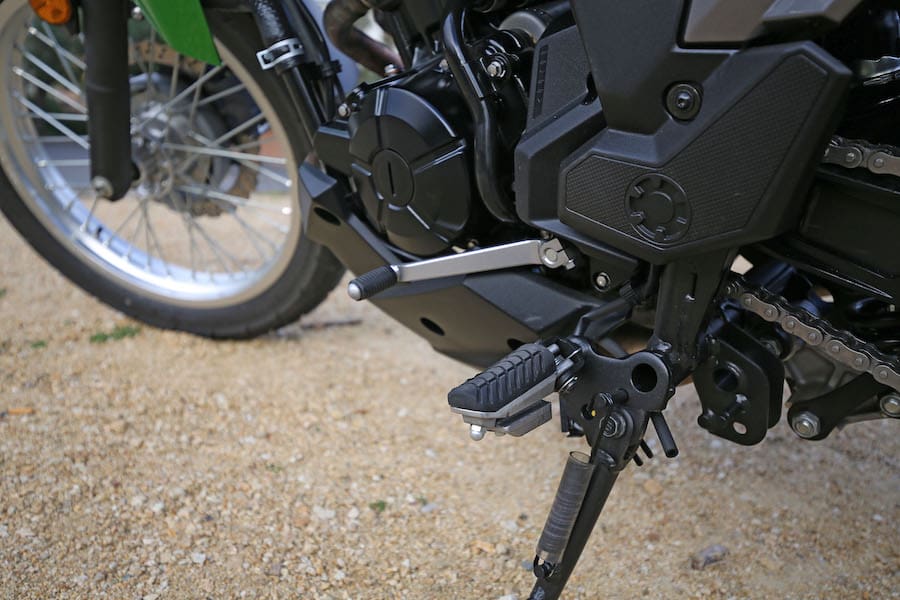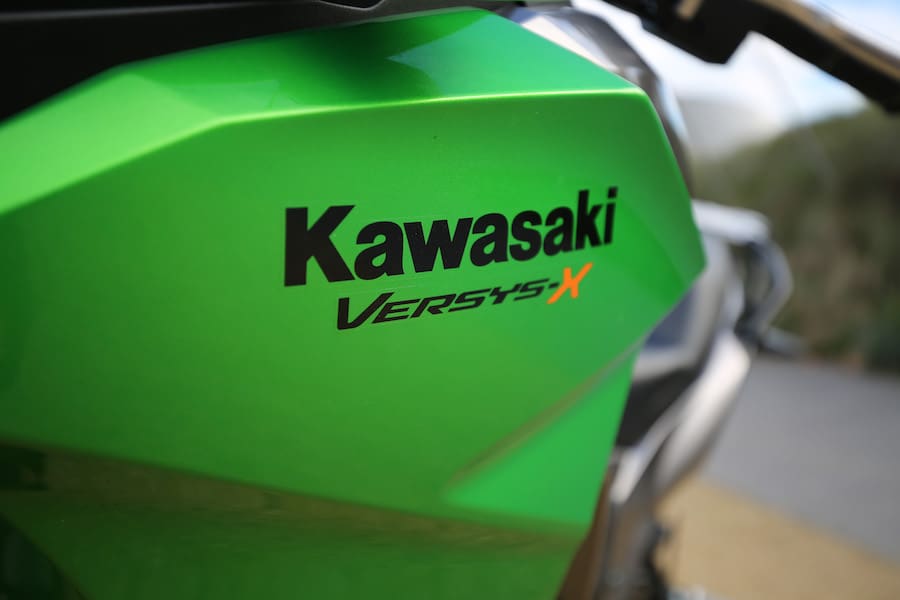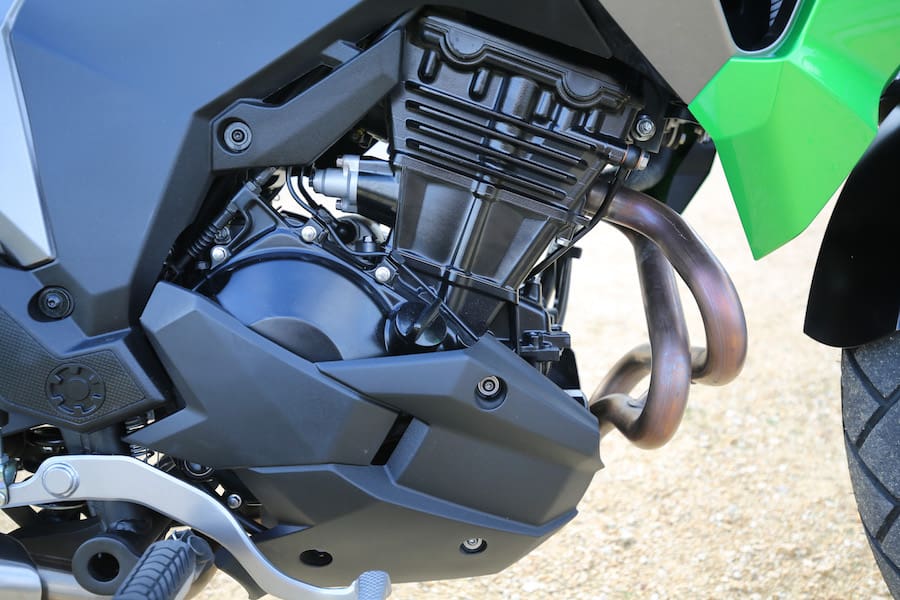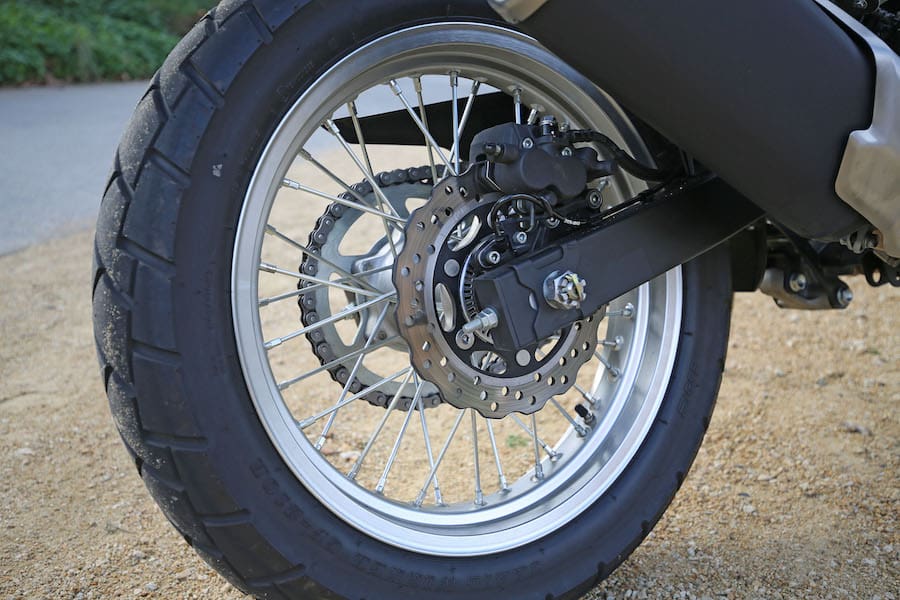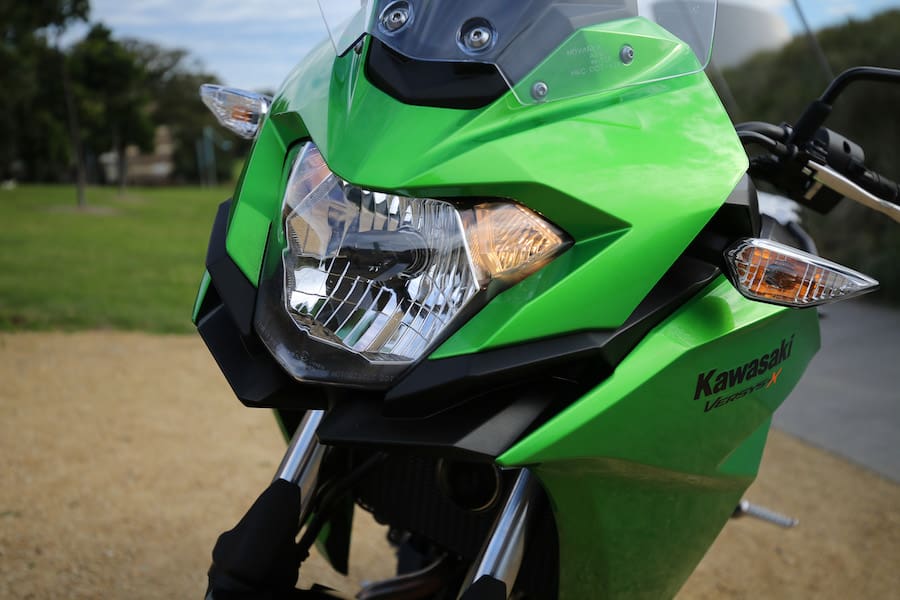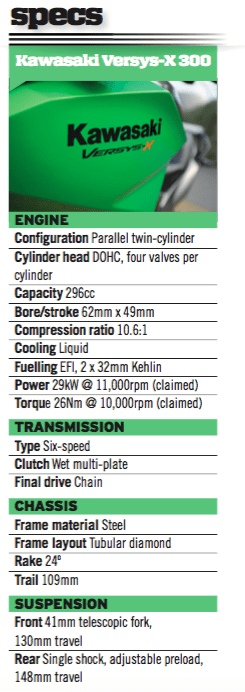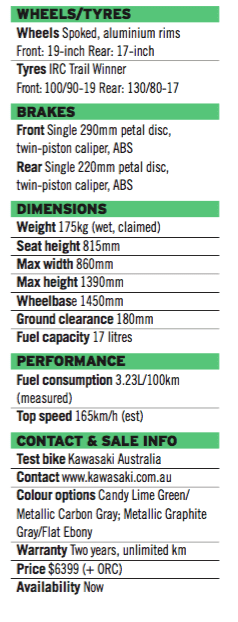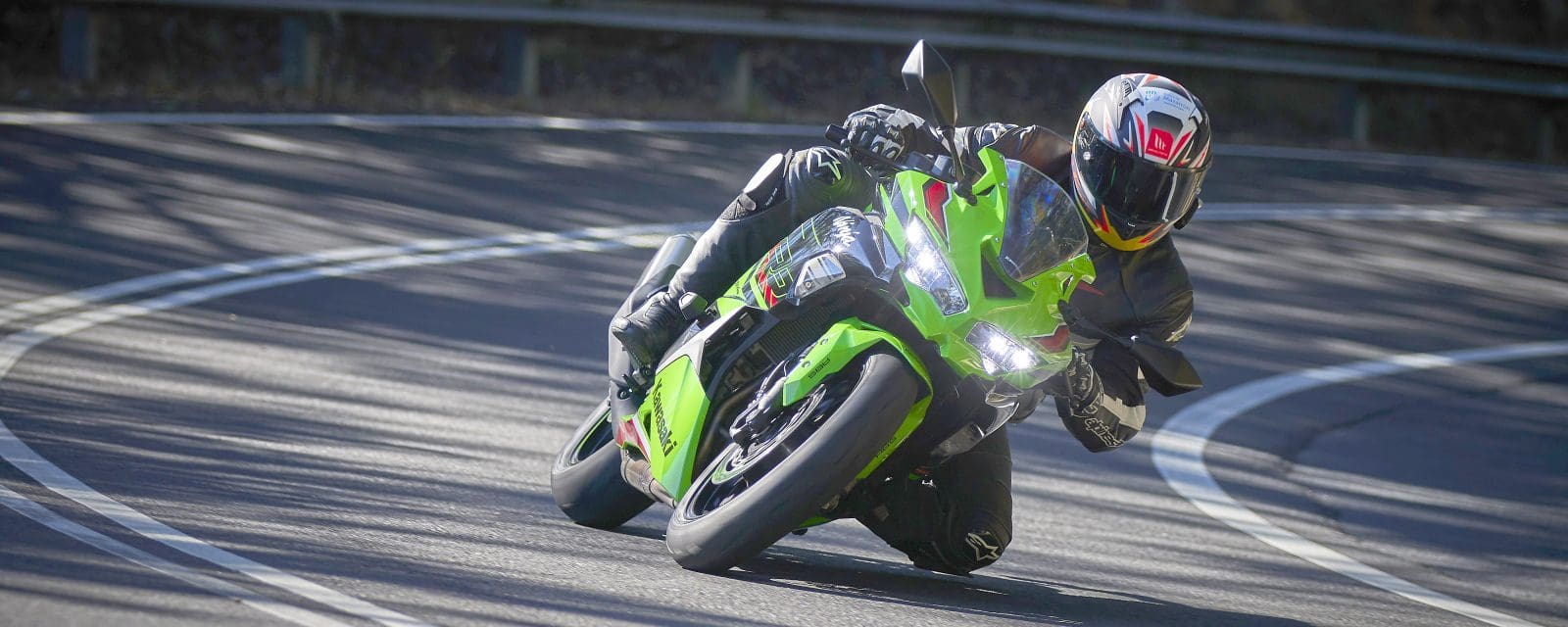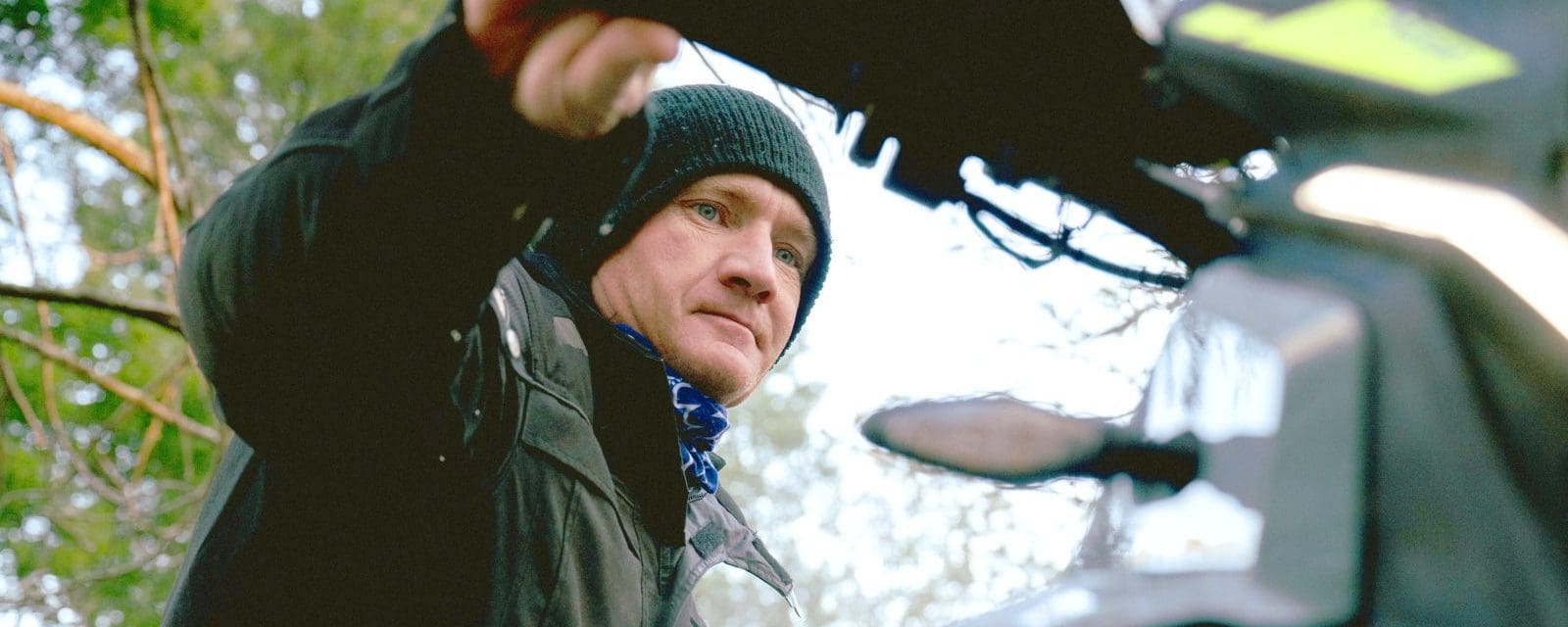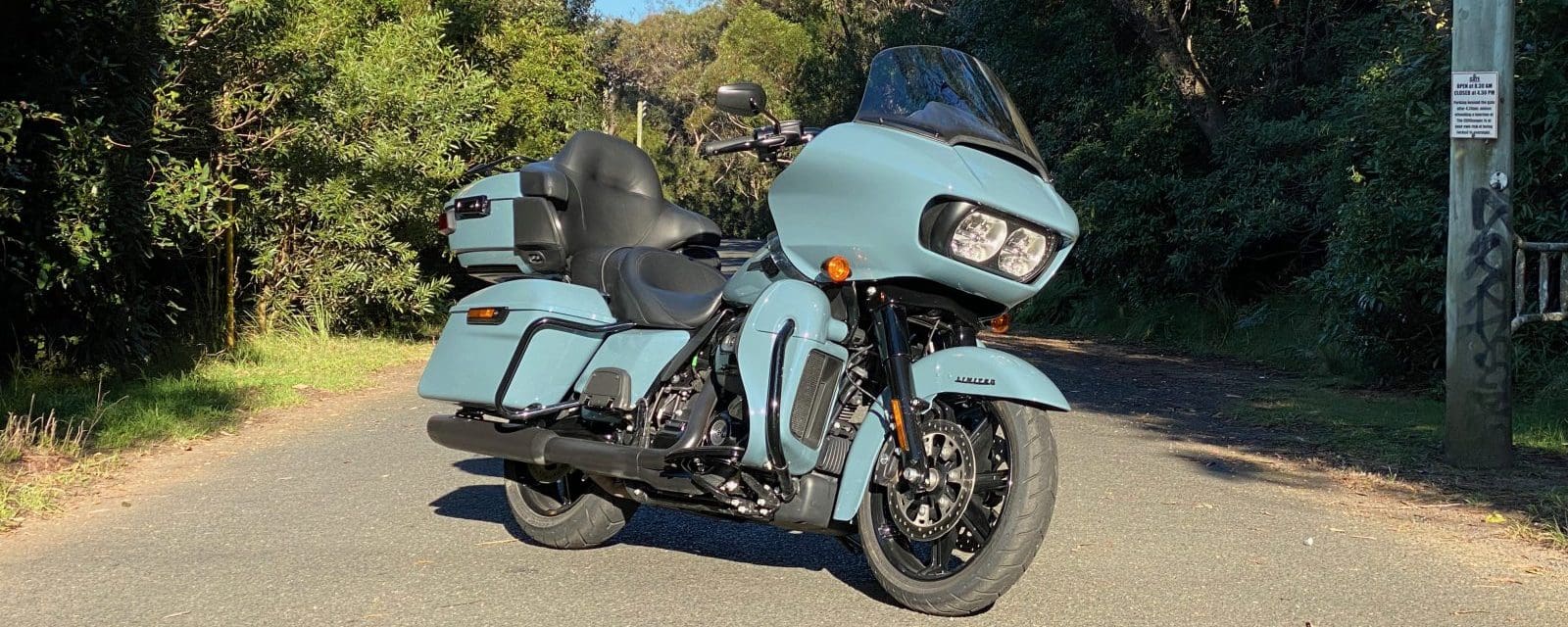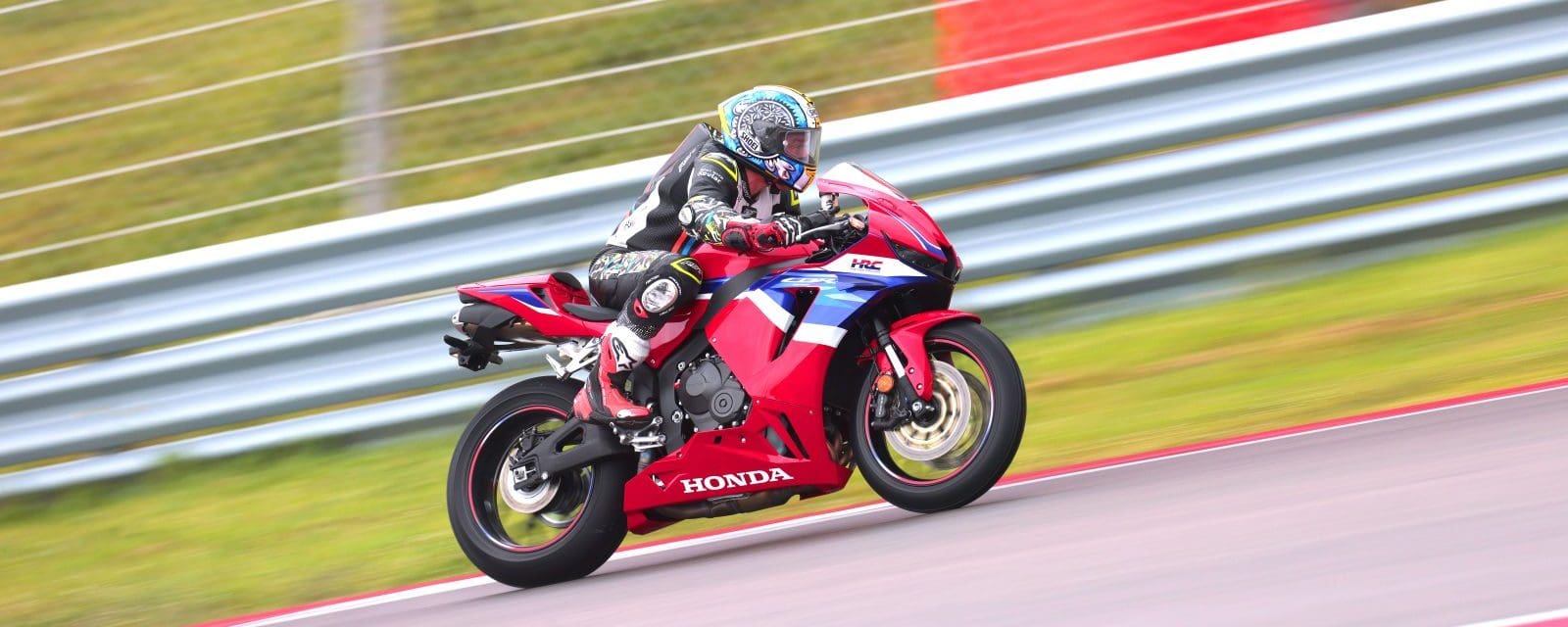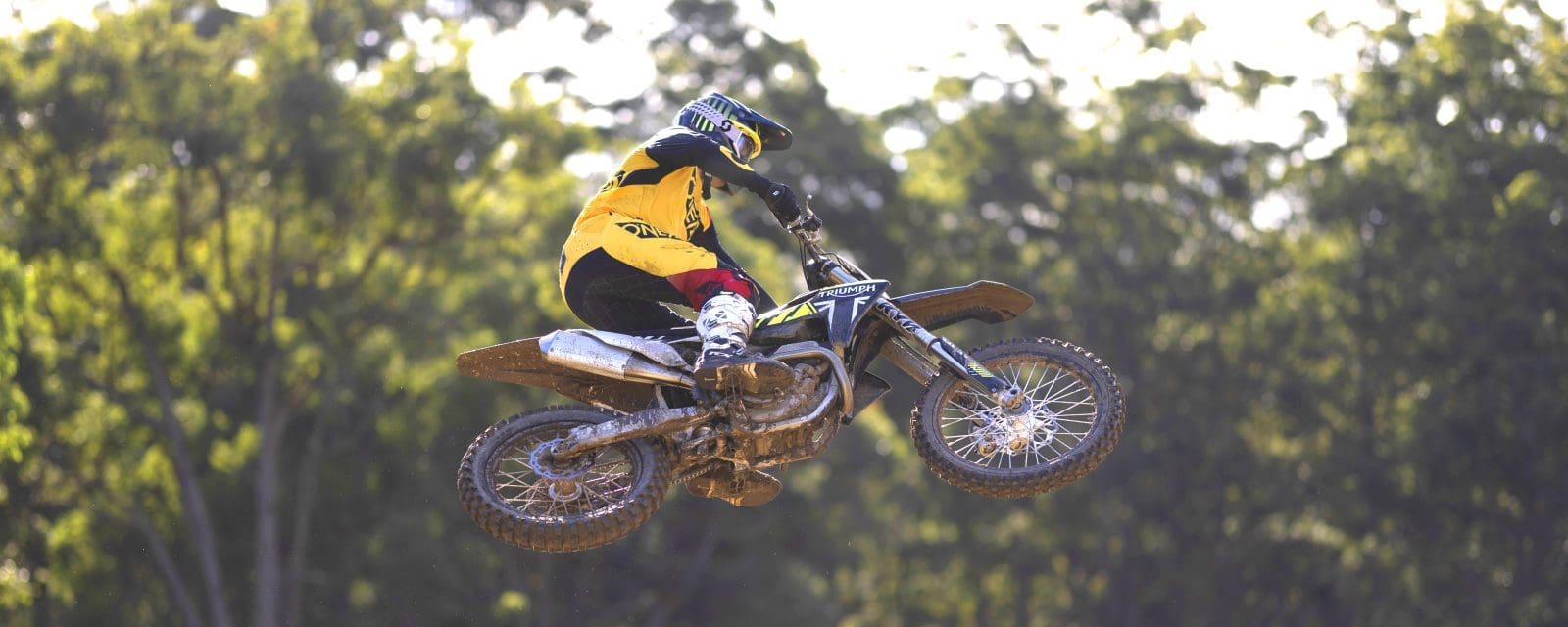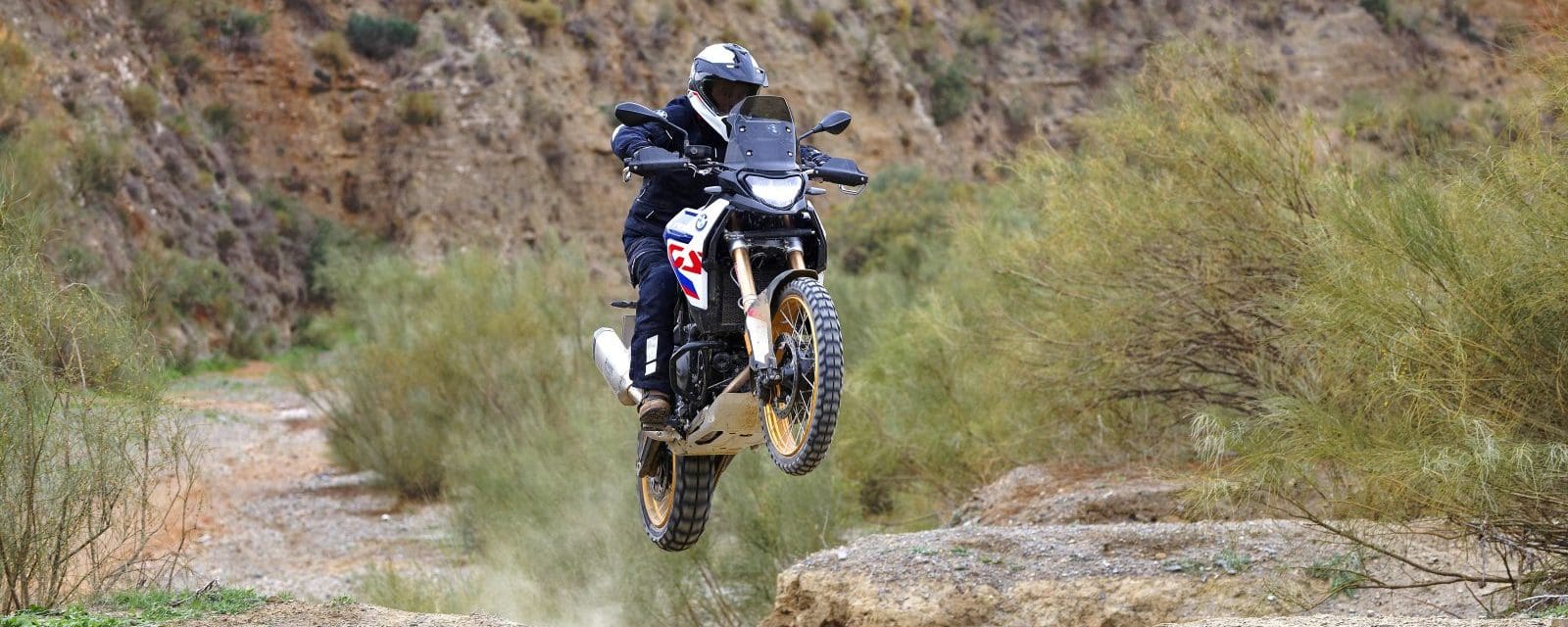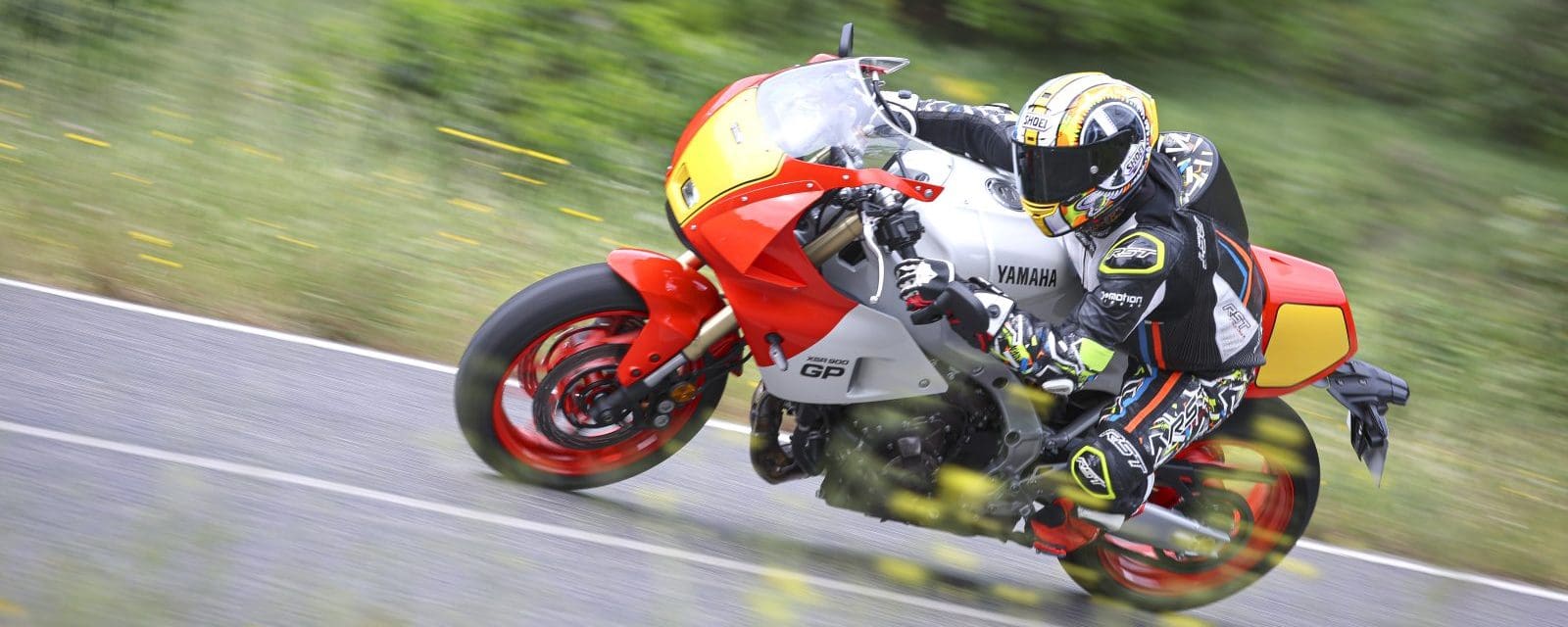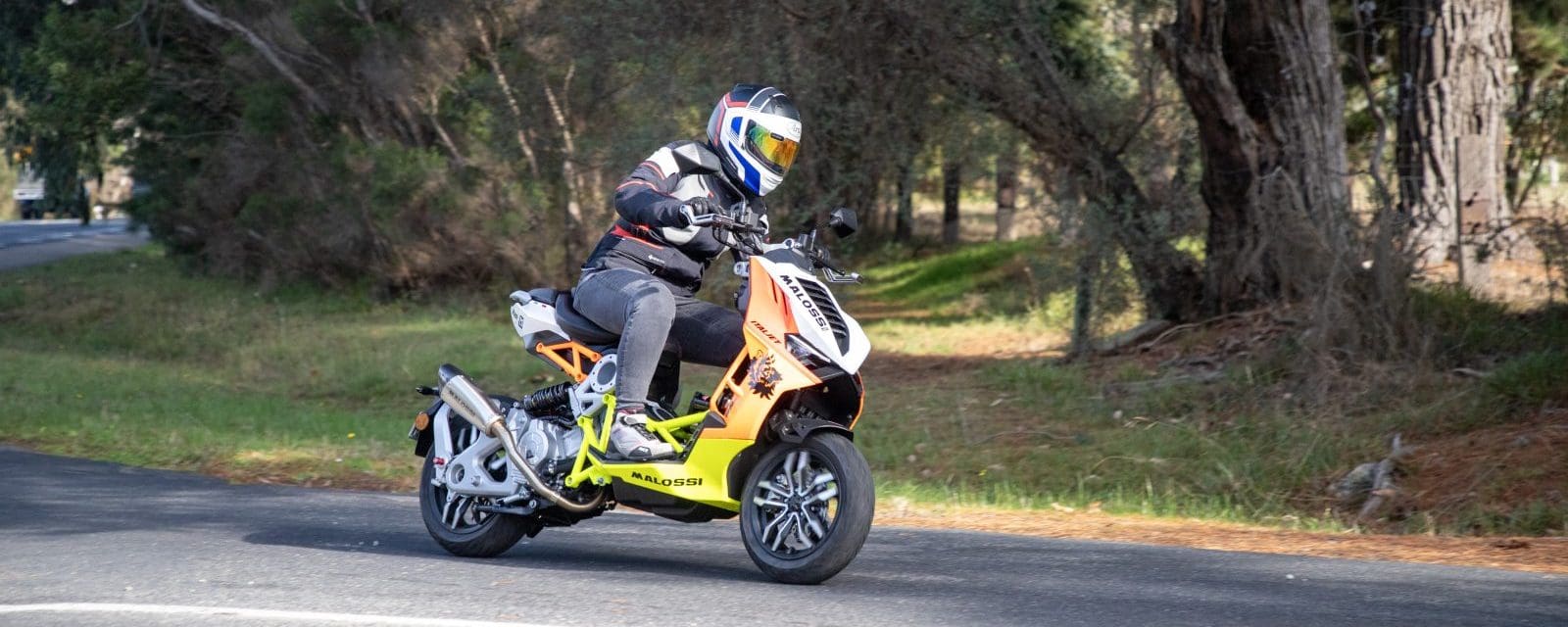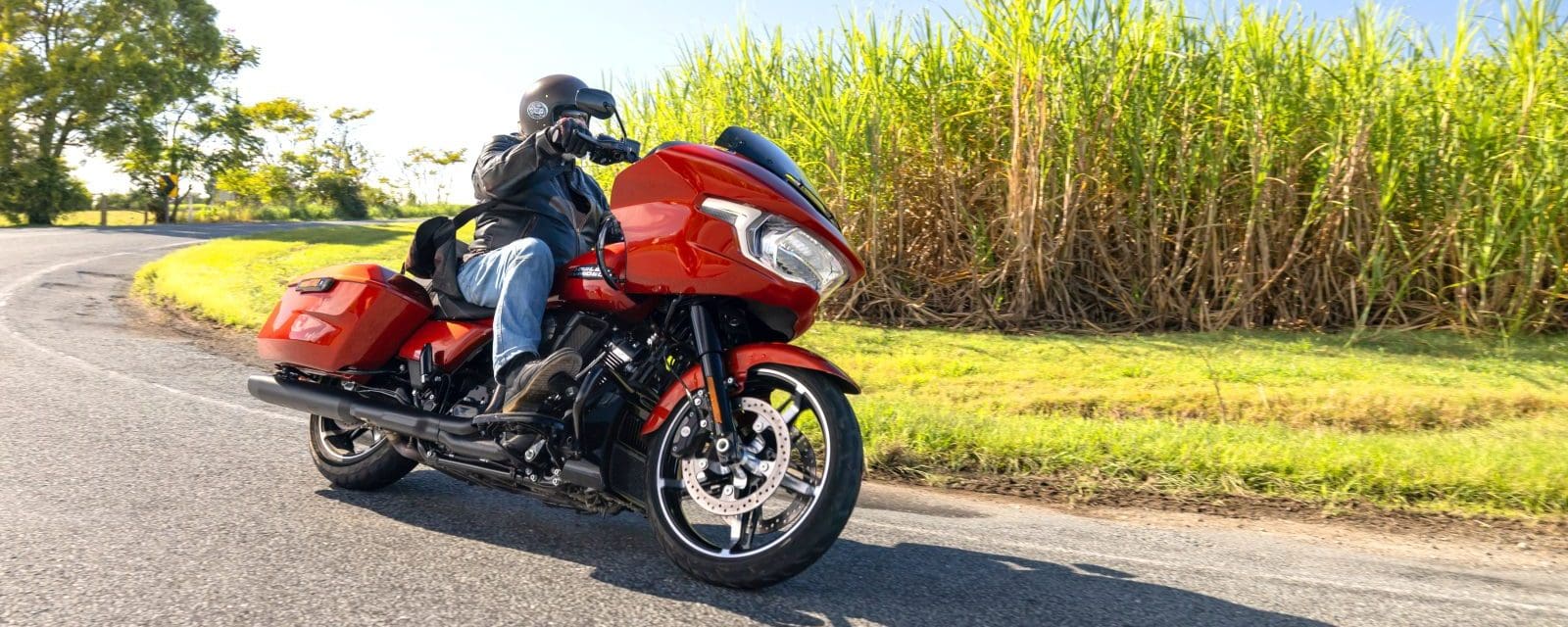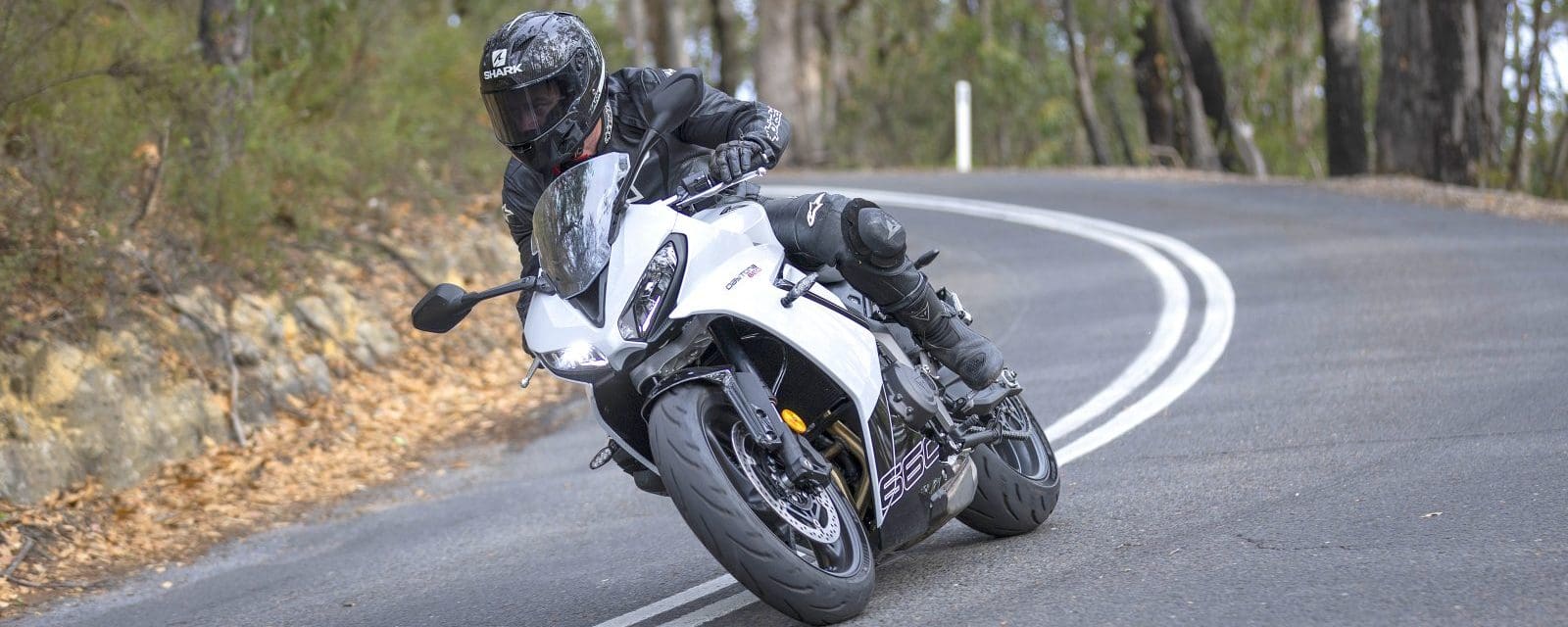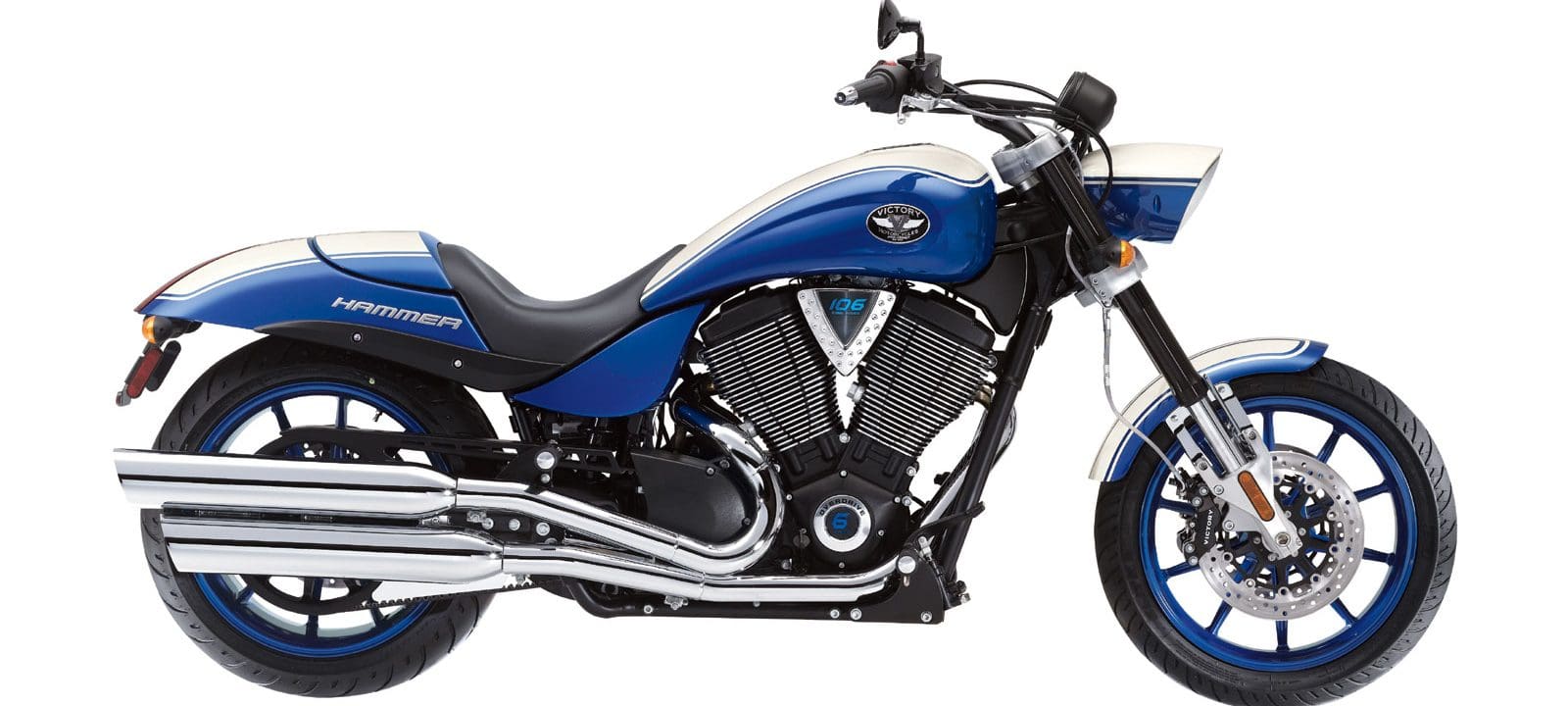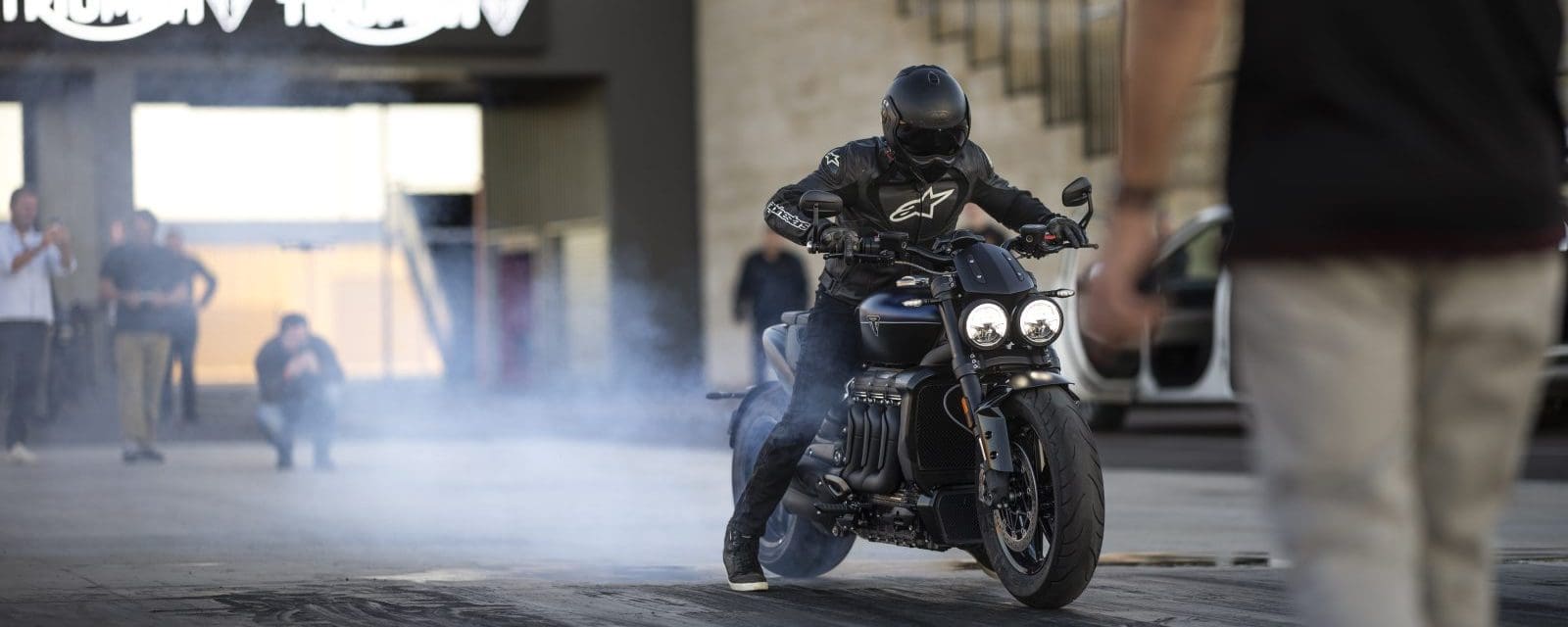Brakes are certainly adequate, with ABS and a single 290mm disc up front. Still I found that adding a good dose of rear brake really helped. And I had to really hang on the brake lever to test out the ABS – it certainly isn’t intrusive.
Many LAMS riders wonder about non-adjustable suspension, and whether it might cause some problems, or not be up to the quality of fully adjustable units. But if the factory has selected the right components, it’s fine. Actually, it gives you fewer things to worry about as a rider.
Kawasaki has done a fine job selecting suspension settings, especially considering this bike has to work on and off the road. Around town the suspension rate in the 41mm front fork is a little slow, which makes for slightly less feel under braking than I would expect, but it is still positive.
As I looked over the traffic – thanks to the tall, upright seating position – I kept thinking back to the solid mounting points for the topbox and panniers because this would be a great bike for tripping around the city with any sort of payload. I see so many restaurants around the city delivering food with a large hot-box strapped to the back of a sporty road-going 250… be kind to yourselves and try a bike like this instead!
The roomy ergonomics and light clutch I mentioned earlier make a day (or night) in the saddle easy on the body. Just keep the throttle twisted hard south.
Out on the highway and freeway, the engine again needs to be revved vigorously to make the speed limit. But these engines can spend a lifetime working hard, and they’re surprisingly good on fuel. The big screen also blocks the wind well, and the dash is brightly lit, easy to read and includes a gear indicator, which is very handy on a smaller-capacity bike.
Even though it’s a 300cc engine, power delivery is nowhere near the same as with a 300cc dirt bike. In fact, due to the gearing, it’s a long way from the performance of the road-going Ninja 300 as well – and there’s a reason…
When designers put together any sort of adventure machine like this they have to hedge their bets on how much off-tarmac time the average rider will do. In this case, Kawasaki elected to add some teeth to the rear sprocket to account for the torque needed if the going gets rough or steep when you’re riding off road.
So if the bulk of your riding is around town then the gear ratios will probably feel fairly close, and you will be tap dancing on the shift lever a little. The solution? Work out how much off road use you’re likely to do on your bike, then adjust your rear sprocket to suit.
Some manufacturers balk at the thought of their dual-purpose test machines being pushed too far out of their comfort zone (read: thrashed like a motocross bike) in case they end up being judged for something outside the design brief. But I figured Kawasaki can’t really call this an ‘X’ unless it hits the bush, so I pointed the bike at some fire trails and unsealed sections to see how it would go.
The Versys-X handled everything that was thrown at it, including rocky creek crossings and rutted-out hills. It couldn’t take much more without a change of rubber, but that X is not just painted on; this bike felt a lot more capable on the dirt than Kawasaki’s press kit let on. The good weight distribution and slow suspension rate make it such fun off road that I can see some dedicated riders being tempted to push it into KLR650 territory.
Tied in with Kawasaki’s customary build quality, the Versys-X appears to be good value at $6399 (+ ORC) and will probably find fans among the growing number of people who live in the city but want to get out on the weekend. And with a couple of simple tweaks you can change its focus to more road or off road.
The Versys-X 300 is a very capable platform that can help you prepare for a larger adventure bike, with the bonus of being an extremely handy commuter workhorse.
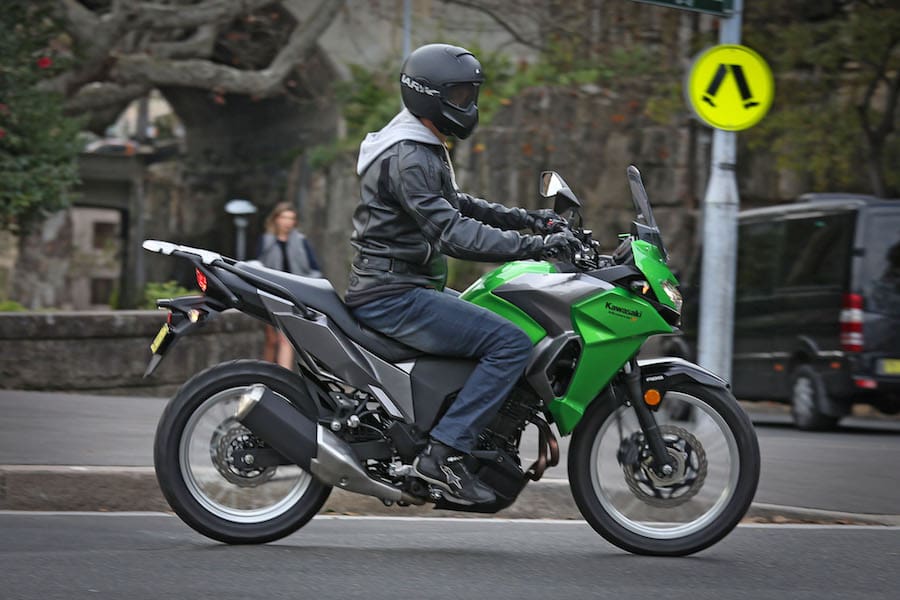
PROS
- Relaxed ergos
- Light clutch
- Neutral handling, easy to manoeuvre
CONS
- Gearing may need adjusting for frequent highway or freeway use
- Hard seat
Test Matt O’Connell
Photography Angi Kim
